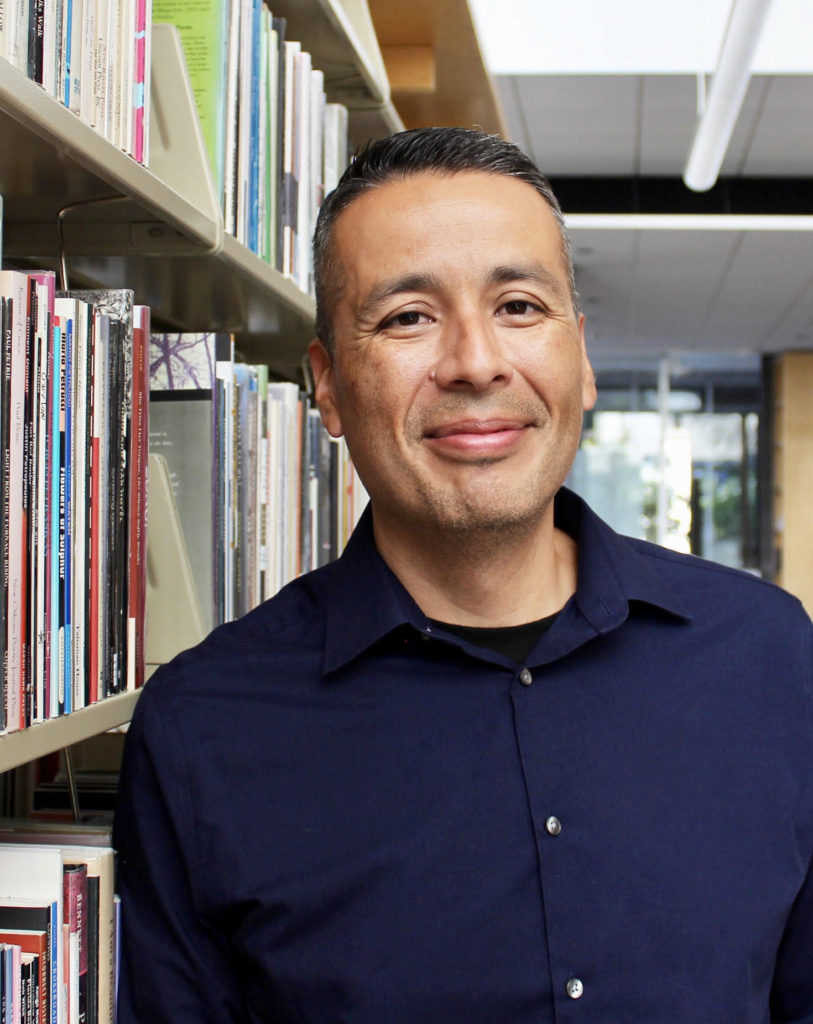
About the Author: Matt Mendez grew up in central El Paso, Texas. He is the author of Barely Missing Everything, his YA debut novel, and the short story collection Twitching Heart. He earned his MFA from the University of Arizona and lives with his wife and two daughters in Tucson, Arizona.
Find Matt Mendez on the following platforms:
Matt Mendez: Barely Missing Everything’s ending wasn’t what I had originally written. In early drafts the ending felt untrue and disconnected from what I’d written. Luckily I eventually realized I’d left myself the roadmap for the ending the story needed, the details for it waiting for me to find and use. I do think the ending is shocking, but not because it is necessarily unforeseen. For me what makes the ending of Barely Missing Everything stunning is the way it will resonate with a reader. Its ability to stay with the reader long after the story has ended.
MM: I was at a writer’s conference and had just had a short story accepted for publication with a lit journal. As I was doing some fact checking on the Texas Department of Justice website—to get the short story ready—I came across a death row inmate who had my exact birthday, day and year. Of course I read his file. He was Mexican like me. We were both born in Texas and from poor towns. And on the month and year he was sent to death row, I coincidently graduated with a BA from the University of Arizona. These coincidences, these similarities, were the beginnings of Barely Missing Everything. I began writing that day, wanting to see how two lives seemingly starting from the same place could go in such different directions. What I found was a story that was much more complicated.
MM: I identify most with JD. Like him, my parents split up my senior year of high school. So, his fear of becoming a ghost, haunting a house where a family used to be, is one I understand pretty well. I also wanted to be a filmmaker! And like JD I had no idea how to go about doing that. If your school doesn’t have an arts program and you don’t have access to any equipment; if none of your friends want to make films and you have zero role models, what are you supposed to do? How do you become a filmmaker? Like me and JD, it might make sense to join the air force, to leave everything you know behind to one day pay for film school.
MM: Nah. I’m concerned with how these issues effect my community and not at all with the negative responses people may have. As far as including systemic racism and police brutality as part of the story, they are part of the world Juan, JD, and Fabi live in. Part of the world I grew up in and continue to live in. So, writing about them candidly, with intimacy, is the same way I approach writing about divorce and the uncertainty that comes with growing up.
MM: Getting the story of Juan, JD, and Fabi into the hands of teens is important to me, especially for Latinx teens. They need this story and stories like it. I want them to have a book that belongs to them, where they can see themselves in all their complications and to know their lives and the culture they’ve grown up in are important enough to be written down. That their lives should be read and discussed and enjoyed.
MM: Writing that section was a lot of fun. I am pretty awful at algebra, so playing around with the ideas of anxiety and uncertainty seemed like a good way to explore Juan’s fears. And tests do that, they provoke doubt as much as they score correct answers. Juan has a ton riding on the results of that test, so having the test itself tap into all of Juan’s doubts and fears, the test literally goading him, was a good way to challenge Juan.
MM: I’m a big fan of Jason Reynolds! He is an amazing writer whose work is really next level, from Ghost to Long Way Down. He’s so versatile; he can change up form but his storytelling never falters.
Gabi, a Girl in Pieces, by Isabel Quintero, is probably my favorite YA book. I have bought, and given away, this book multiple times.
I’m a fan of Ibi Zoboi, Kekla Magoon, Lilliam Rivera, Erika L. Sánchez, Elizabeth Acevedo, Rene Perez, and Daniel Acosta.
MM: I write very early in the morning on Weekends, usually between 4 AM and going until about 9. Then once, every two weeks on my day-off, I’ll write for 8 hours—taking breaks, obviously. Having a job and family makes writing tough at times, but for me this routine has worked out.
MM: The editing process was FANTASTIC! I could not have had a better editor. The great Caitlyn Dlouhy helped make BME better in every way. We started big, tightening the manuscript up and then slowly made our way to copyediting—where I began to wonder if I even knew how to spell (so many typos). And Yes, we had an editor on the team who spoke Spanish. Interestingly, there was a some back-and-forth about slang, the editor, from the east coast, unfamiliar with some of the regional usage.
MM: Honestly, I hate writing first drafts. I’m much better at revising and looking at something that needs to be fixed than I am at creating the thing in the first place.
MM: I want readers to really connect with these characters and to remember them when sensational news headlines flash across TV screens or are posted online. That there are complex lives and circumstances behind soundbites and memes and that we, as media consumers, as a society, should learn to be more compassionate.
PRR Writer, Alessandra De Zubeldia